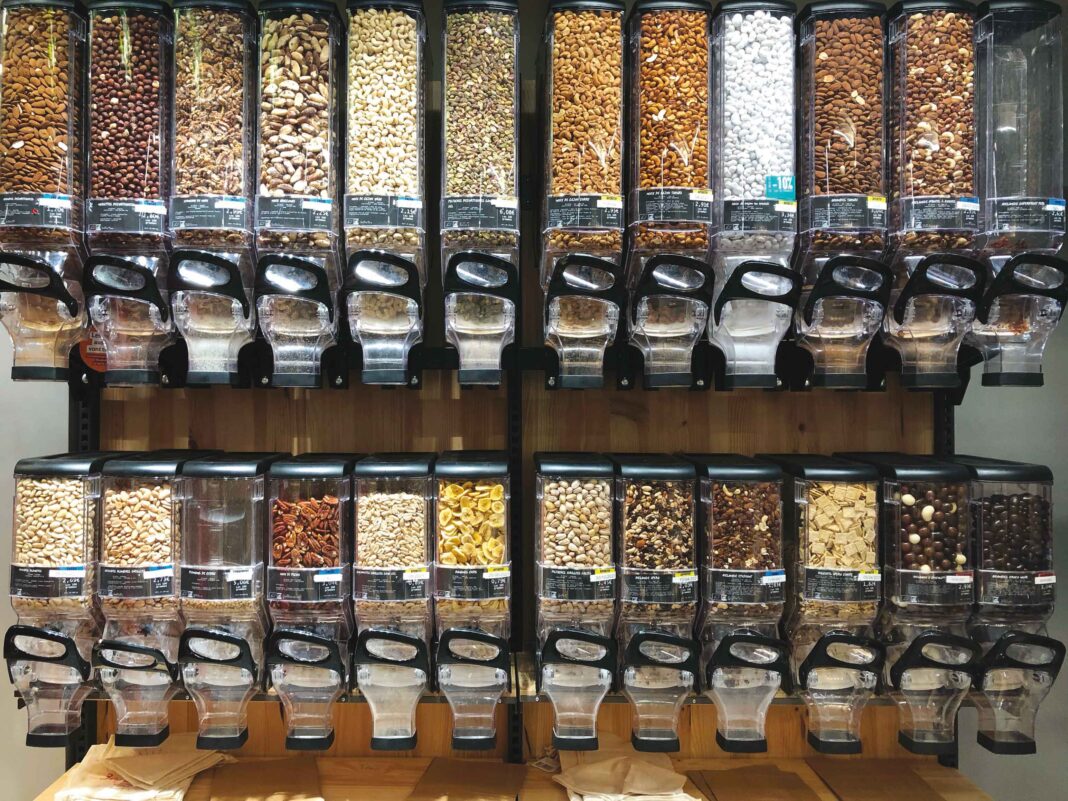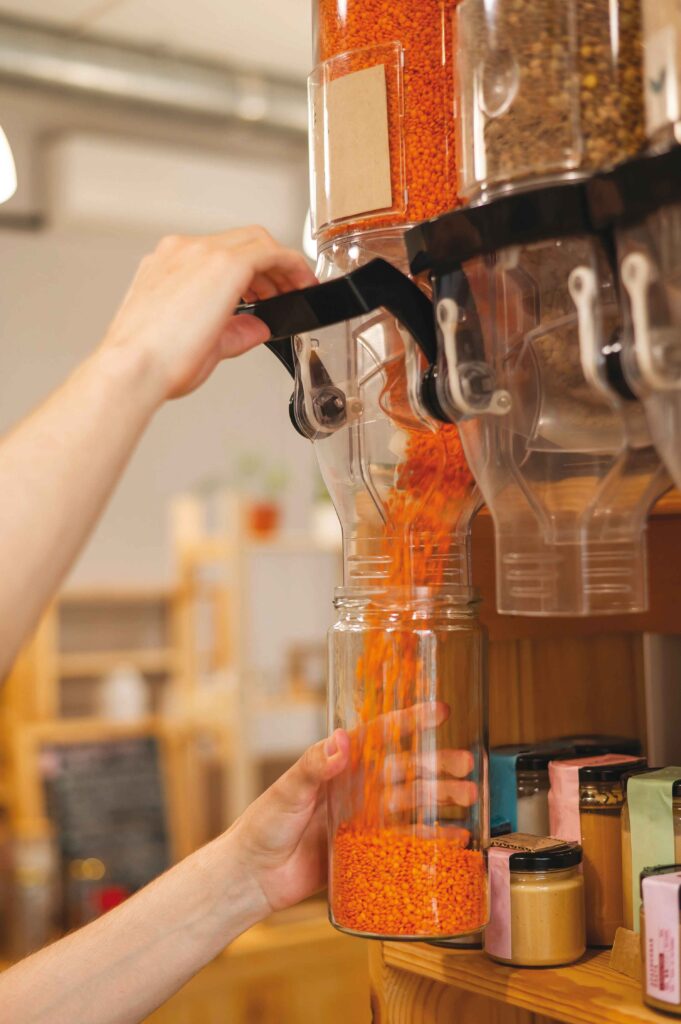Built to last, inflation affects many consumer products. The services and information company NielsenIQ, specialized in consumption measurement, analyzes the performance of organic and bulk products, and the impact of the inflationary crisis on these purchases. The context actually undermines these virtuous practices and makes their price accessibility even more strategic..
Drawing on its business expertise, its data and innovative technologies to collect and analyze consumer and distributor trends, NielsenIQ is closely following the evolution of mass consumption and today shares the lessons of its latest studies devoted to organic and bulk products in collaboration with Réseau Vrac. While trends towards more naturalness and more responsible products have progressed in recent years, the international context (Covid-19 pandemic, shortages, inflation, conflict in Ukraine) comes to slow them down. Three out of four consumers worldwide say they have revised their priorities compared to what they were in 2019. Regarding bulk, context matters.
2021 was marked by a drop in home consumption, a decline in sales of consumer products both in volume (- 2 %) than in value (- 0,3 %). A decline which is mainly explained by Shopping Carts presenting fewer products, with additionally for bulk, the aftereffects of the health crisis. 2022 is marked by record inflation, price increases over one year now exceed 6% on average for the 12 most inflationary categories. Eight out of ten French people now monitor their spending and are not willing to spend more on food, even if this is not their first economics position.
What are the prospects for eco-responsible purchasing? ?
To increase sales, bulk must make itself attractive and not make the price an additional barrier to purchase. Although 82% of French people do not know what the Eco-Score is, they remain largely attentive to current responsible consumption initiatives. for example, 45% of them consider the reduction and modification of packaging important (less plastic), fair trade (51 %), or procedures respecting animal health (44 %). If 31% of households purchased in bulk in 2021, a lot of educational work around this mode of consumption remains to be done to win the hearts and wallets of households. Among the obstacles to purchasing cited by nearly 60% of French people surveyed : preserving product quality, hygiene, the absence of a visible brand or sufficient information on the products. Beyond, the lower consumption of bulk in 2021 is explained by a price per kilo that is too high (for 26% of respondents), the unavailability of the product that the consumer needs at the time of their purchases (10 %), or even because the ray is not on its route (11 %). Some of these barriers to purchase can be more easily removed by, for example, making containers available, QR codes providing information on the quality and composition of the products.
Bulk solutions
Bulk affects almost all consumers, with the exception of those who prioritize the search for time savings. otherwise, 50% of French people buy their bulk items by favoring certain circuits : large specialized organic stores, supermarkets and hypermarkets. Bulk has become part of the consumption habits of four million consumers. Of this total, 48% of those over 65 say they buy bulk regularly, compared to 42% for those under 35. For the French people, bulk has until now remained an economical purchase before being ecological. 35% of people surveyed say they choose bulk to buy the quantity they need, 23% to reduce their waste (packaging), 10% because it is cheaper. 52% of French households would like to find more accessible products in the bulk section, particularly for grocery products. (69 %), maintenance (53 %), and beauty hygiene (41 %). “Inflation invites the French to adapt their consumption. Bulk has strong growth potential which requires in-depth work in terms of education, signaling, diversification of available products… while remaining accessible and making this known to households”, comments Nicolas Riant, Associate Manager chez NielsenIQ. For Célia Rennesson, co-founder and General Director of Réseau Vrac, “during times of inflation, be able to control your expenses, without sacrificing product quality while preserving planetary resources seems complicated. Bulk brings solutions. It allows us to reconcile the notions of ” end of the world ” and ” end of month ” which we nevertheless consider as antagonists”.
Purchasing organic products during times of inflation
If sales of so-called conventional products remain stable, organic turnover fell by 6% in general circuits (hypers, supers, proximity, e-commerce and SDMP*) at the start of 2022. After a year of decline in 2021, sales of FMCG Bio (value) should nevertheless move according to projections towards stability in 2022 (5 965 000 euros, 5,991,000 euros in 2021). The weight of organic products no longer increases on the hygiene/beauty aisles (4,3% in 2022, 4,4% in 2021) and reduction in dairy costs (8,7% in 2021, 8,2% in 2022) as on the non-dairy fresh (charcuterie, caterer) : 4% in 2021, 3,6% in 2022. The development of the organic offer in stores, which carried the growth of recent years, noticeably running out of steam (+ 0.2% offer since the start of the year). For Pauline Peyron, consultant at NielsenIQ, the question of price has and will have a very different impact depending on the clientele concerned : “If organic products are generally less impacted by inflation than conventional references, they remain on average 30% more expensive.
The most modest and family consumers therefore risk continuing to abandon these better value products in the face of their decline in purchasing power..
But the biggest consumers of organic, more affluent, urban and less impacted by inflation, should continue to give a significant proportion to organic products in their purchases of food products. » For illustration, Ile-de-France homes, certainly less sensitive to the increase in the price of gasoline, only reduced their organic purchases this year by 0,6 %, compared to minus 3.6% in the rest of the territory.













